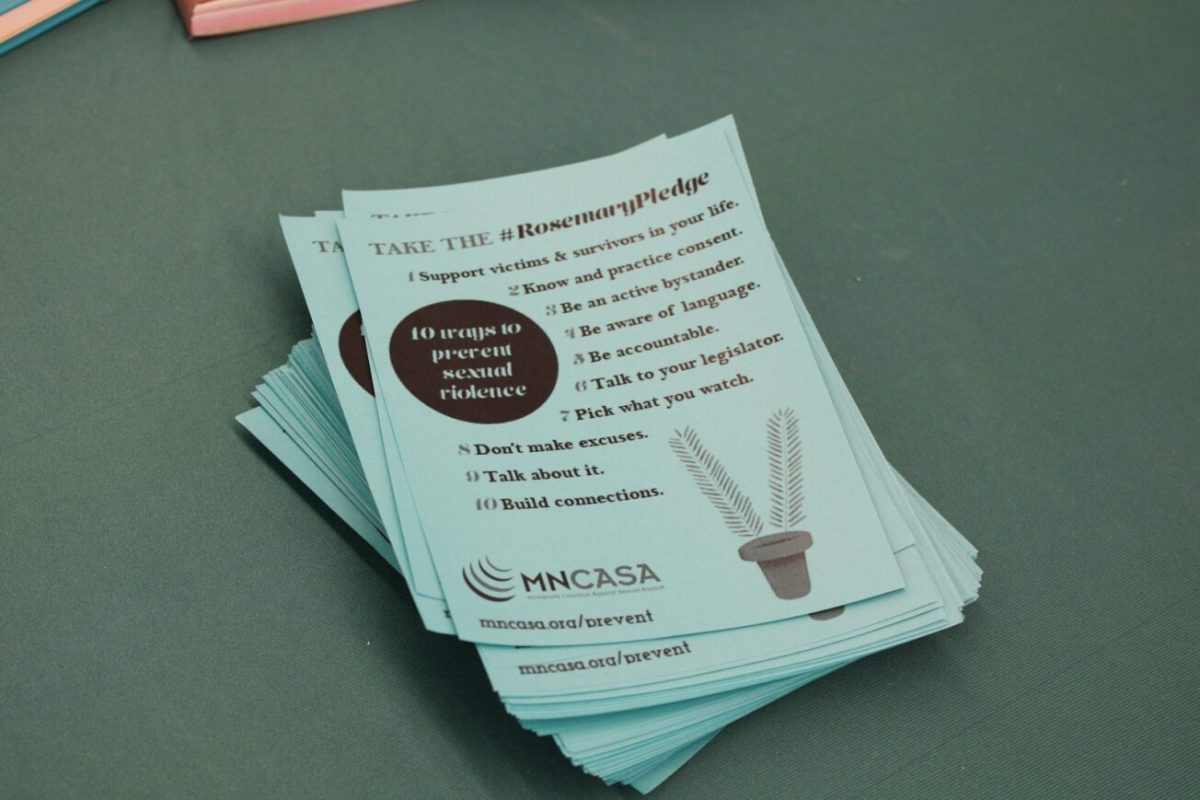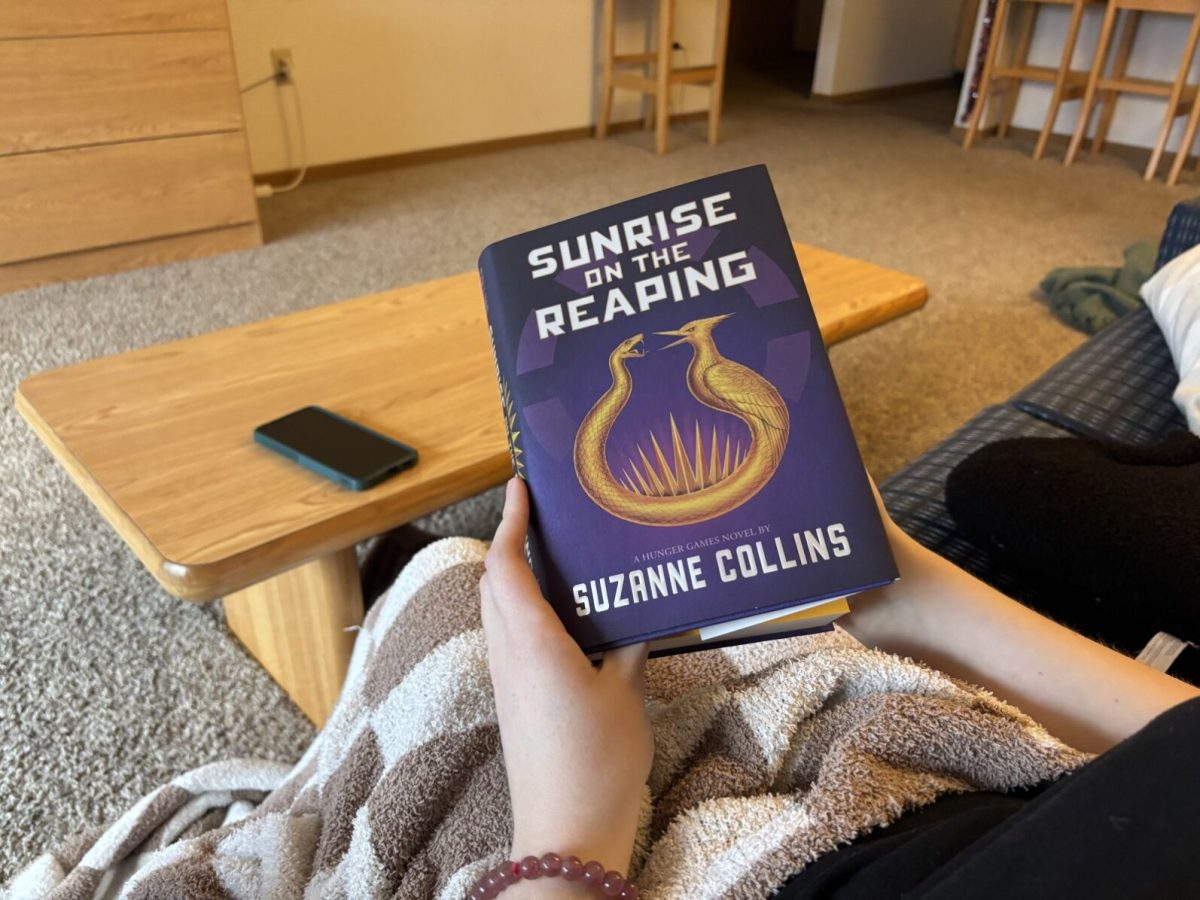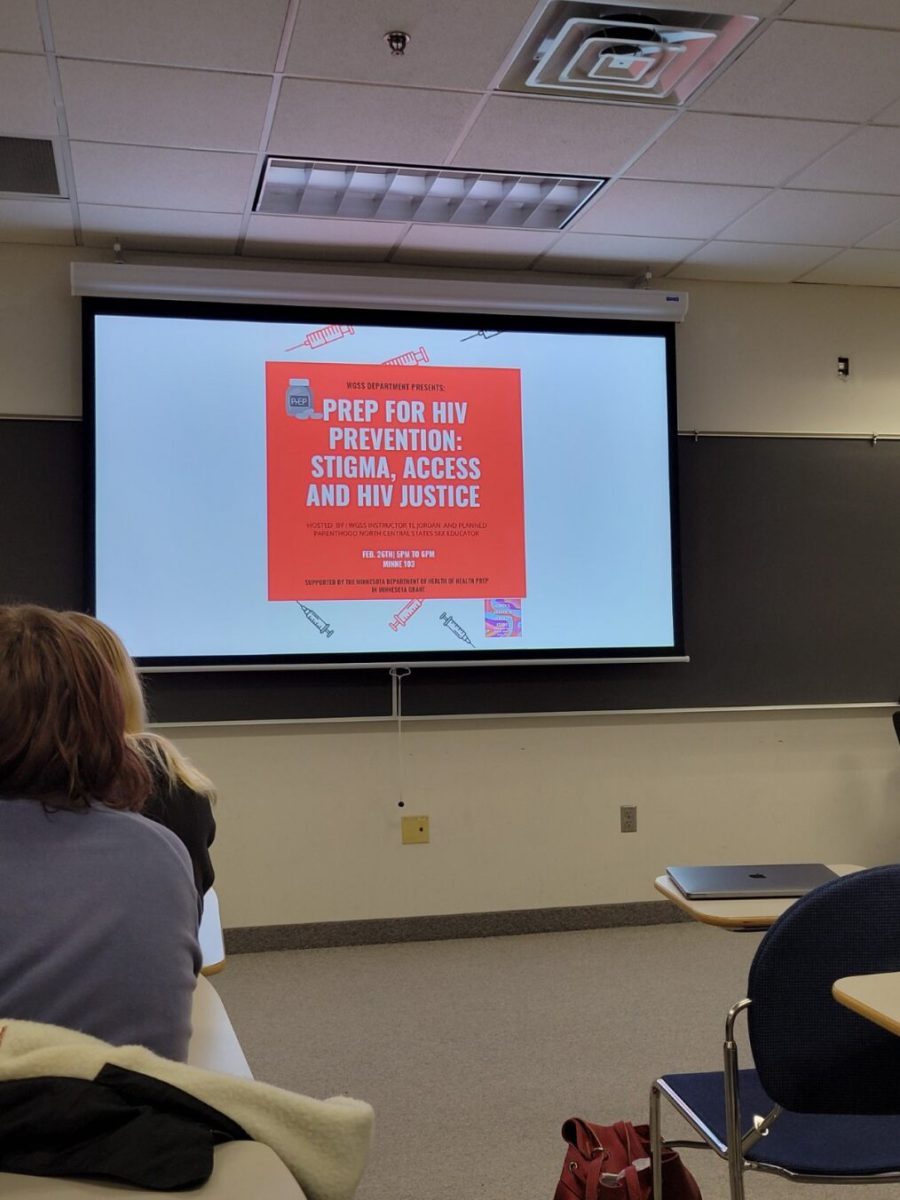Hannah Jones/Winonan
Last week, I had the pleasure of attending Micahel Kimmel’s presentation on his acclaimed book, chosen for this year’s common book, “Guyland.”
As one of the leading researchers and writers on men and masculinity, Kimmel is somewhat of an expert on the ten-year transition period from boyhood to manhood in regards to gender identities, gender norms and yes, gender inequality.
Before he began his talk on the book, he prefaced his presentation by noting that several audience members were wearing a particular article of clothing: a controversial homecoming t-shirt depicting a sinking ship. The caption on the shirt reads: “She’s going down; I’m getting off.”
This shirt has been at the heart of a heated debate. Wearing it is almost an act of rebellion, seeing as it has been prohibited for sale on campus. If the people wearing the shirt were feeling rebellious, however, they were certainly quiet about it. The room was utterly still as Kimmel eyed each member of the audience in turn, then launched into his presentation on the rampant gender inequality that persists even into our modern era.
A group known as the “Warrior Yacht Club” originally sold the now-banned t-shirt on campus.
This is somewhat of a misnomer, as the “Warrior Yacht Club” is neither an official club, nor affiliated in any way with Winona State University, nor actually involved with yachts of any kind. Indeed, if the Warrior Yacht Club actually attempted to become a legitimate club or affiliate itself with an existing club or fraternity on campus, it would have come to naught.
The offensive messaging on the t-shirts, which can be read as blatant harassment of women as a group, bars the group distributing them from becoming a legitimate facet of the university for policy reasons. It was for these reasons that the shirts were banned first from sales on campus, and then from Mugby Junction.
The shirts, however, are still being sold in other outlets, and it is there that the gray area begins to appear. As long as the Yacht Club abstains from using Winona State trademarks or university owned technology, the shirts lie just outside the border of the school’s jurisdiction. However, there is little doubt that some students find the shirt offensive and inappropriate enough to warrant preventative action.
“You just have to think… what kind of a message are they trying to send?” A student asked, shaking her head. “And why is that okay?”
Perhaps it isn’t “okay” to demean an entire group of people with a lewd shirt caption, but a surprising number of people—including females—find the shirt funny, and are even buying it.
Director of Student Conduct and Citizenship, Alex Kromminga, is directly involved in negotiations with the “Warrior Yacht Club” and their head-turning t-shirt. When asked about the legitimacy of enforcing a shutdown on distribution, he shook his head, too.
“College is a time for free expression of thought, word and deed,” he said. “Many of the topics explored can be offensive to people… but just because it’s offensive doesn’t mean it’s in violation of code.”
Enforcing a block on the Yacht Club’s right to free speech in order to curb the demeaning message on the shirts would not only be incredibly difficult to enforce, but also would open up a whole can of worms in terms of regulatory policy. After all,
if the university interfered with the Yacht Club’s messaging, would it not be obligated to interfere with the school’s official clubs and enforce similar guidelines?
Kromminga sighed, pausing. “Do I agree with the group that is selling the shirts?” he finally asked. He once again gave his head a slight shake: “No.”
The line that separates where one group’s rights begin and another’s end is thin and ambiguous, and when it comes to making light of gender, racial, religious or disabled groups, edgy comedians like these seem to enjoy skipping rope with it. A good laugh is often made better when there is rule-breaking of some kind involved. However, as Kimmel continued his presentation on the problematic to disastrous effects of enforcing strict expectations on gender—for male, female and any other gender identities—it seemed as though much more was at stake than a few dirty jokes. Honorary Yacht Club members sat motionless and silent in their seats, and the unspoken question echoed through the room:
Why is this okay?
Contact Hannah at HJones09@winona.edu











































